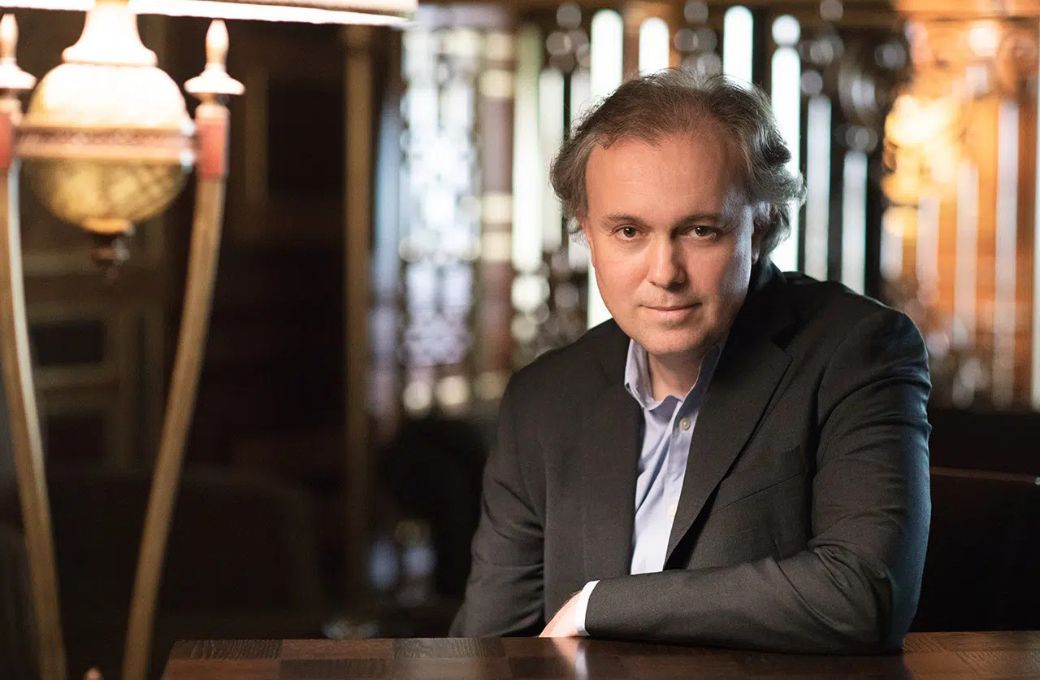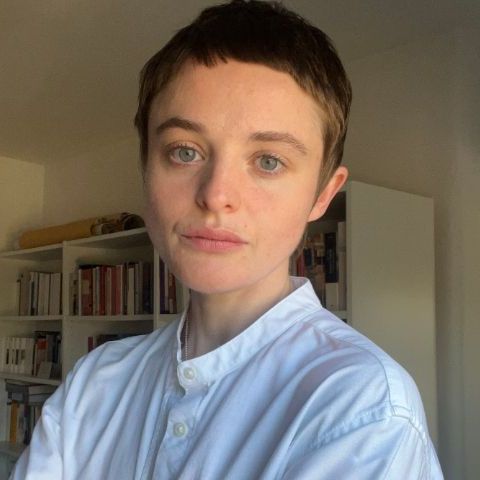“You sit in a concert hall, and it’s like an ocean of sound,” Alexey Shor tells me on a scorching April morning in Dubai. But, he adds, “you look at the printed page and it’s not that much information.” It’s an off-hand comment, but one that offers insight into what drew the former mathematical Wunderkind and financial trader to the world of classical music in his forties. Shor is a fascinating figure, whose backstory has recently generated as much attention as his melodic and digestible compositions. It’s easy to understand why: with no formal musical training, his autodidact approach to learning the ropes of composing has made his swift rise to fame even more remarkable.

It’s a tale that has raised eyebrows in some circles, and provoked speculation over the use of assistants – human or technological – in others. Nevertheless, Shor’s work continues to garner plaudits and earn the composer positions and performances across the globe. A quick glance at the litany of venues in which has work has been performed confirms the meteoric quality of his ascent: “Wiener Musikverein, Berliner Philharmoniker, Carnegie Hall, Kennedy Center (Washington DC), Concertgebouw (Amsterdam), Gasteig (Munich), Wigmore Hall, Teatro Argentina and many others” – according to the fact-sheet issued by Classic Violin Olympus, the idiosyncratic competition held at the end of last month in the UAE, at which Shor was composer-in-residence. A list guaranteed to generate envy among any of his peers, and to which further esteemed halls will surely soon be added.
How, then, did he get started? Having been cultivated as a mathematical talent from a young age, first in his native Ukraine, then at Moscow State University, Shor emigrated in the early 1990s, via Israel, to the USA where he studied dynamic systems theory at Penn State. After postdoctoral research, he was hired by Renaissance Technologies, a Long Island-based hedge fund that pioneered the application of quantitative research methods to trading on the stock market. This analytic style of problem solving informed his approach to music which began with reading “standard theory books”, he explains.
“Kupka for harmony and Adler for orchestration. A lot of basic texts overlap at an 80% rate, but the other 20% is actually valuable. And then there are other books that are more like summaries, but once you have the basic information, those summaries are really excellent. Walter Piston wrote excellent books on harmony, counterpoint, orchestrations. And Rimsky-Korsakov has a great book on orchestration.” Not all his reading was creatively generative, however: “Tchaikovsky has a lousy book on harmony, a lousy book. I couldn’t get through it.”
Shor’s friend, the Broadway composer Oran Elder, encouraged his new interest and soon the two were collaborating, on a variation of a Ukrainian folk song, which was performed by another friend, the violist David Aaron Carpenter, in New York. From there, things moved “pretty quickly. [Carpenter] played them a little bit with a small orchestra and then he had some concerts with a bigger orchestra. They asked for more, and that I couldn’t really do because I needed to learn how to orchestrate better. But at that point, I was like, Okay, this is serious mode.”
Initial audience reactions also spurred Shor on. At early performances of his and Elder’s Ukrainian variations, post-Soviet expats – a crowd Shor describes as “custom-made” for the work – “just went crazy. People jumped up, started stomping their feet – you don’t see that at classical music concerts, and I certainly didn’t expect it for my piece.” How has he found the reception in Dubai, a location that is only beginning to develop a reputation for classical music performances? “About 90% of people that live here are not local, so it’s just a very, very mixed audience. In that sense, it’s pretty much like everywhere else. You rarely hear any languages except English and Russian.”
Outsiders to an industry can often be more perceptive critics of its inner workings than lifelong members. What does Shor make of the classical music world today, as a new arrival? “I think Covid was a huge hit, but now things feel kind of back to normal. In general, I think the success of my music is to a high degree attributable to a hunger from the audiences for a continuation of the traditions of the music they already love, as opposed to being very avant-garde. So my only thought on the state of the industry is that over the years a pretty big disconnect has developed between what the audiences want and what the elite composers are producing. And maybe it will change. I hope so, because I want more new music that I enjoy listening to.”
I probe him on what he means by a “disconnect”: a preference for avant-garde modernist compositions, over 19th-century European works? “In the 20th century, the way music and art developed was very different [from earlier times].” Shor sees the modern period as schism within a longer tradition, when even revolutionary shifts were evolutionary: “Beethoven revolutionized music, but you look at his early work, especially, and there’s a clear line to Mozart, and it continues throughout history.” It’s a line the 20th century broke, he feels, and one he’s keen to repair, to provide the “tonal, more immediate” kind of music that draws in larger audiences. “I think there’s something built into us, on a biological level that makes us respond to normal rhythms and regular tonality. It’s like how Pythagoras studied the intervals we find pleasant and unpleasant.” Children, he argues, respond well only to certain types of classical music: “There is Mozart for babies and Bach for babies, but there’s no Stockhausen for babies.”
Shor’s relationship with CMDI, the company behind CVO goes back many years: he’s consistently named ‘composer-in-residence’ for their events. What responsibilities does this bring with it? “Just to provide the scores”, he answers, reasonably enough. No new works were written for the competition, the organizers were happy to include a choice of three of his concertos for the competitors to perform, as part of a subsidiary round that had a €10,000 prize for best interpretation (the award went to Haik Kazazyan, of Armenia, who also won the overall prize). “The organizers always liked my music, they always programmed some of it, and that’s how I met a lot of people. Fortunately, they still seem to like my music and it continues from here.”
After his work in 2022 as Associate Composer at the Yehudi Menuhin School, an institution well-represented on the CVO judging panel, Shor has now taken up the same spot at the Oxford Philharmonic, an orchestra led by Marios Papadopoulos, also a CVO juror. As far as future writing plans go, he’s at work on a cello sonata, “I just hear music in my head, and I want to write it down. It’s an amazing journey for me, because I never, ever in my wildest dreams, expected this. I read biographies of composers like you read biographies of astronauts – it’s just not my life. The fact that I get to live it a little bit, it’s amazing to me. Fantastic.” CMDI’s Classic Cello Competition will take place at the Royal College of Music in spring next year.
See upcoming performances of music by Alexey Shor.
This article was sponsored by the Classical Music Development Initiative.


